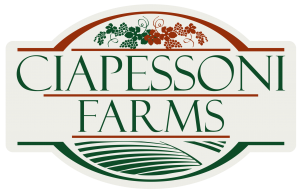Keeping up with Change
/When you've spent your whole life on a multi generational farm like I have, it's hard not to be amazed at just how fast the world changes around us. Town gets closer, crops change, rules change. Ten years ago, we didn't worry about water. Thirty years ago we had more people than equipment. In order to keep a farm like ours alive for the next generation, you can't keep your head in the sand, you have to look ahead and see these changes, you have to accept them, and you have to stay ahead of them.
California sure as heck doesn't trust farmers. On our horizon, we can already see fertilizer and water regulation coming. We also see an insane increase in the minimum wage and labor regulations that are basically going to eliminate the option of doing things using piece work. It's going to make farming in California cumbersome and if these things don't happen in my lifetime, they will happen in my sons.
So I look ahead, I try to envision a family farm that can make it under these conditions. To make a living farming, everything comes down to how much you spent per acre vs how much that acre brought in. With labor increasing so dramatically, almost doubling, we will have to also double the efficiency of our people, this is fancy talk for instead of using two people to do a job, I need to fire one of those people and buy a very expensive piece of equipment. I want you to understand, this is not about greed or profit, this will be the difference between our farm being here in thirty years or being sold by the bank and becoming one of those corporate farms that people seem to hate so much and both of those employees being out of work instead of one.
There's a problem with this though. Here, these employees aren't numbers, I grew up with most of them, I can see 90% of their homes from my yard, my four year old son smiles at them and knows their names. So, we expand. We move into the service side of farming, pick up a lease here and a lease there and some farm management and commercial harvest. We buy the equipment we will need in ten years now so we can increase our efficiency enough to take on more land and farm more acreage with our existing employees. It would be easier, less risky, to just maintain what we have, but then we wouldn't be us. Most people think that a small family farm like ours is just a constant cultivation of the same property, same crops, same routines, but those farms only last a generation or two. To make it last, it's the people you have to cultivate, not only the employees, but yourself and your family.


